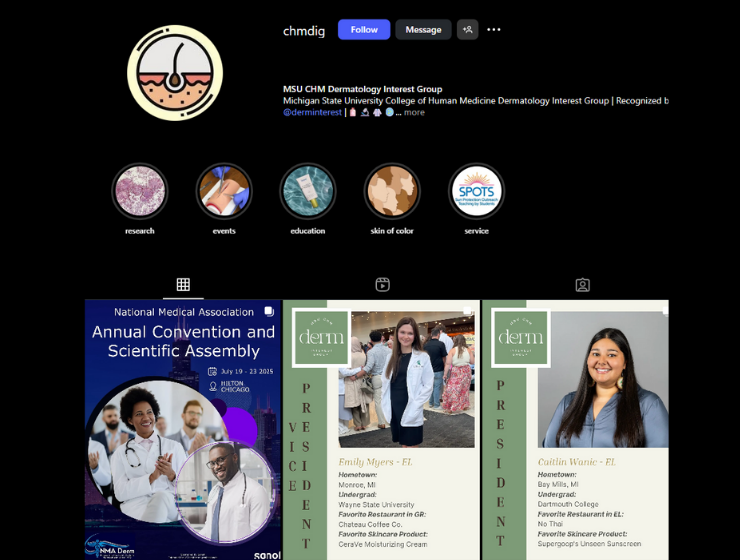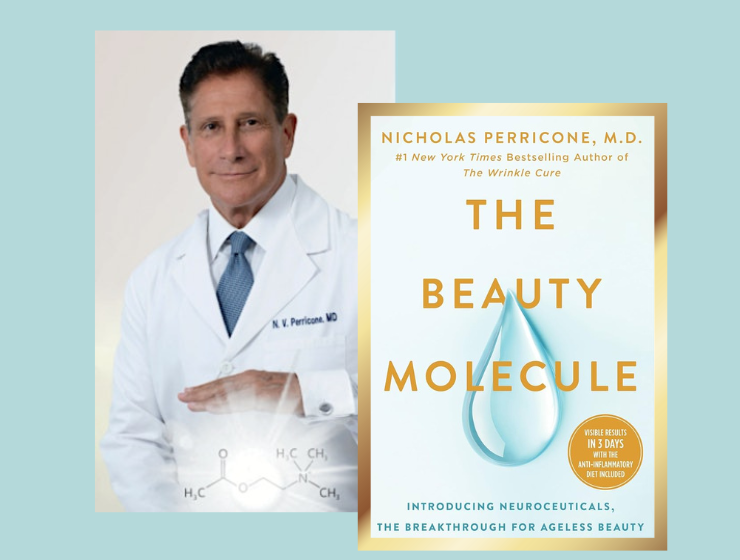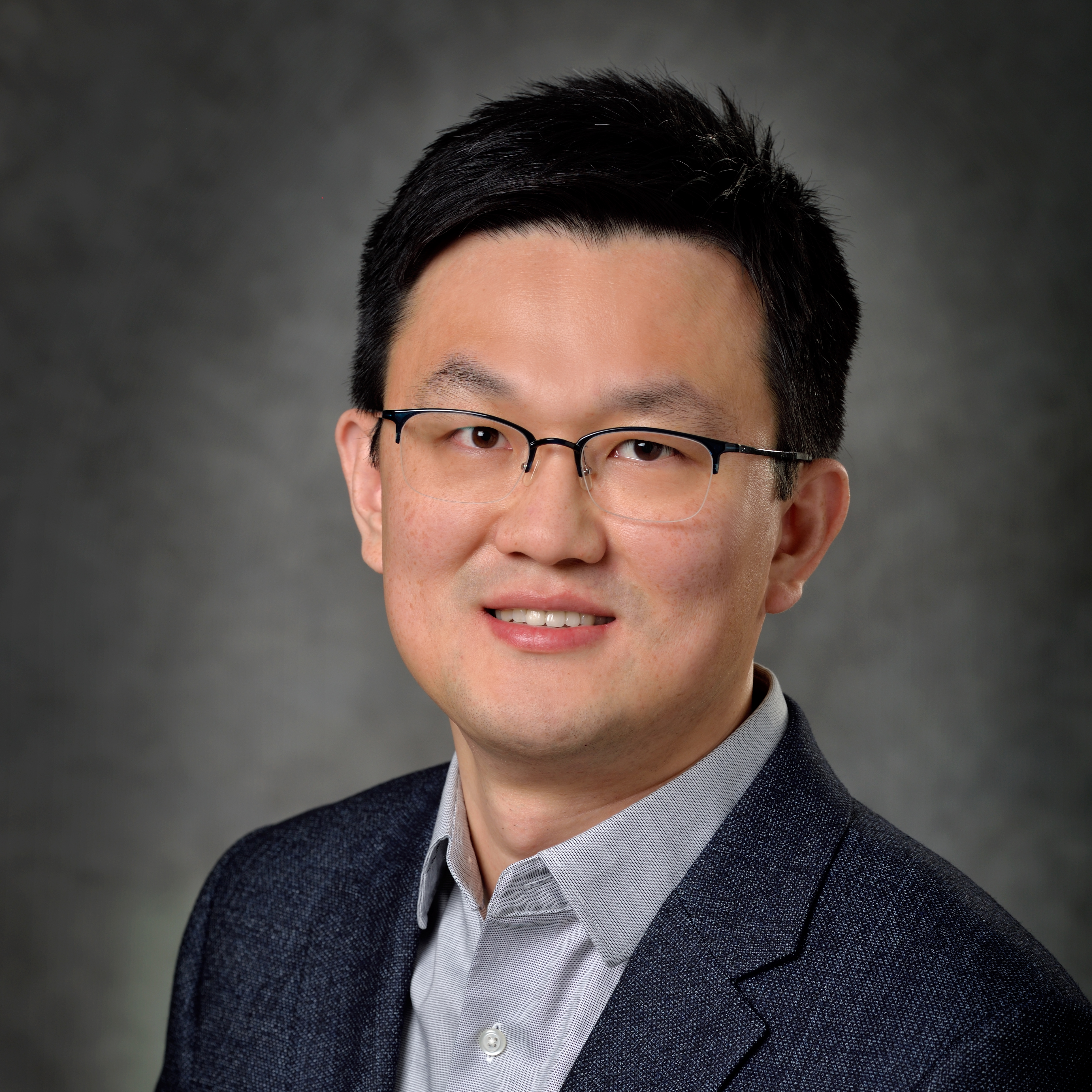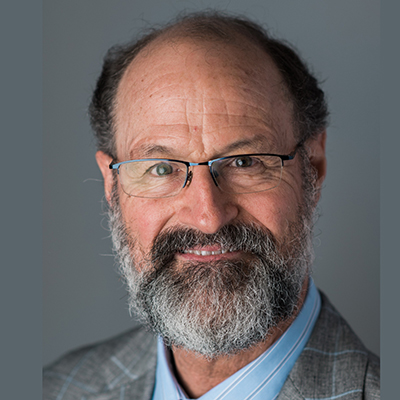Nicholas V. Perricone, M.D. Division of Dermatology Research
Since 2002, the Nicholas V. Perricone, M.D. Division of Dermatology Research at the College of Human Medicine has greatly increased students’ access to Dermatology researchers and improved their chances of being accepted into residency programs. The college recognizes the importance of research in advancing the field of Dermatology and is committed to investigating cutting edge basic science, clinical, translational, and epidemiologic research in skin diseases and cancers. Some of the impact the Nicholas V. Perricone, M.D. Division of Dermatology Research has had includes:
• Research around the prevention of metastasizing of melanoma
• Research of inflammation and skin cancer
• Supporting an Undergrad Research Program (Kahn Dermatology Summer session)
• Sponsored Medicine Grand Rounds (given by Thomas J. Hornyak, MD, PhD)
• Investigating the role of lipids in cancer, including melanoma
• Anti-melanoma drug research
• Dermatology Intersession course
About Dr. Nicholas V. Perricone, M.D.

Dr. Nicholas V. Perricone, M.D., board-certified dermatologist, nutritionist, innovator, author, and graduate of the MSU College of Human Medicine, Class of 1982. Recognized for advancing holistic approaches to dermatology through science, nutrition, and integrative health, and for contributions as founder, patent holder, and best-selling author.
The Nicholas V. Perricone, M.D., Division of Dermatology Research embodies this legacy, fostering discovery that unites traditional medicine with nutrition, topical treatments, and evidence-based therapies. Research within the division reflects a commitment to innovation, compassion, and the advancement of knowledge for the benefit of patients and the field.
Division Supported Researchers
Sangbum Park, PhD
![]()
Sangbum Park is an Assistant Professor in the Department of Medicine and in the Department of Pharmacology & Toxicology. His lab’s research focuses on understanding fundamental principles of adult tissue regeneration during homeostasis and repair by using in vivo imaging. Dr. Park was recently recognized with an Early Career Research Excellence Award.
Jamie Bernard, PhD
![]()
Jamie Bernard is an Associate Professor in the Department of Pharmacology and Toxicology, and the Department of Medicine, Division of Dermatology. Her research focuses on toxicological effects in daily life that can trigger the formation of cancer. Dr. Bernard recently joined Senator Elissa Slotkin and Katie Couric to discuss the Bernard Lab's ongoing research efforts to address breast cancer amid federal health research dollar cancellations.
Richard Neubig, PhD
![]()
Richard Neubig is a retired Professor in the Department of Pharmacology and Toxicology. His research focused on G protein-coupled receptor (GPCR) signaling and intracellular modulators of that signaling.
Dr. Neubig received his Ph.D. in Pharmacology from Harvard Medical School. He received his M.D. from the Harvard-MIT Program in Health Sciences and Technology, and completed his residency at University of Michigan Hospitals. Prior to joining MSU in 2013, he held faculty positions at the University of Michigan, including co-directing UM’s Center for Clinical Genomics.
Dermatology in Action

MSU CHM Dermatology Interest Group
Student group that is committed to supporting various opportunities to medical students.

The Beauty Molecule
Dr. Perricone's latest book is available now!

Interim Chair appears on Dean's Town Hall
Interim Department Chair David Ozog talks on the Dean's Town Hall about merging the two entities.
Dermatology Related News Stories
David M. Ozog, MD, appointed interim chair of the Department of Dermatology
Making an Impact More than Skin Deep
Understanding the skin's defense system
Healing Power of Art Connects Artist and His Care Team
MSU Scientists Use Artificial Intelligence to Find New Uses for Drugs in Treating Diseases
Publications
Park
Live imaging reveals chromatin compaction transitions and dynamic transcriptional bursting during stem cell differentiation in vivo.” Elife. 2023 12:e83444. doi: 10.7554/eLife.83444. PMID: 36880644.
Bernard
Adipocyte-derived kynurenine stimulates malignant transformation of mammary epithelial cells through the aryl hydrocarbon receptor.” Biochem Pharmacol. 2023 Aug 23;216:115763. doi: 10.1016/j.bcp.2023.115763.PMID: 37625554
“Identifying chemopreventive agents for obesity-associated cancers using an efficient, 3D high-throughput transformation assay.” Benham V, Bullard B, Dexheimer TS, Bernard MP, Neubig RR, Liby KT, Bernard JJ. Sci Rep. 2019 Jul 16;9(1):10278. doi: 10.1038/s41598-019-46531-y.PMID: 31311976
“Photoimmunology: How ultraviolet radiation affects the immune system.” Bernard JJ, Gallo RL, Krutmann J.Nat Rev Immunol. 2019 Nov;19(11):688-701. doi: 10.1038/s41577-019-0185-9. Epub 2019 Jun 18.PMID: 31213673. *This publication from Dr. Bernard in Nature Reviews Immunology was recognized on the cover of the journal.
Neubig
“Role of Rho/MRTF in Aggressive Vemurafenib-Resistant Murine Melanomas and Immune Checkpoint Upregulation” Int. J. Mol. Sci. 2023, 24(18), 13785; doi.org/10.3390/ijms241813785 “Rho-mediated signaling promotes BRAF inhibitor resistance in de-differentiated melanoma cells.” Misek SA, Appleton KM, Dexheimer TS, Lisabeth EM, Lo RS, Larsen SD, Gallo KA, Neubig RR. Oncogene. 2020 Feb;39(7):1466-1483. doi: 10.1038/s41388-019-1074-1. Epub 2019 Oct 28. PMID: 31659259




